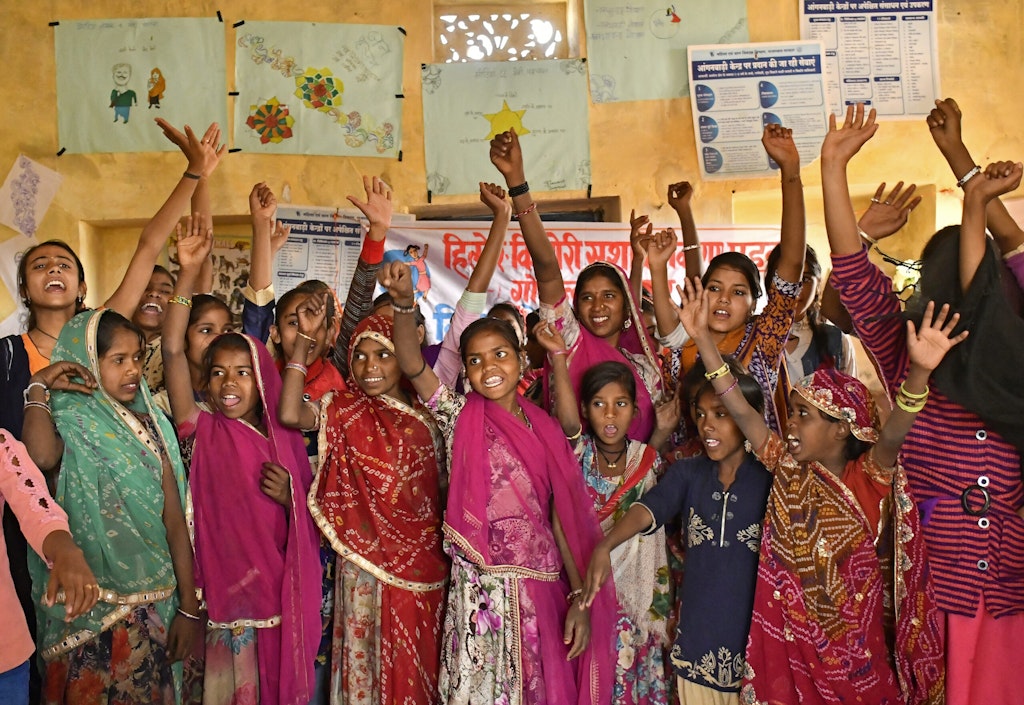Estimated reading time: 5 minutes
Gender equality and women’s economic empowerment are critical for any society seeking long-term growth. As the United Nations states, “Gender equality is not only a fundamental human right but a necessary foundation for a peaceful, prosperous and sustainable world.”
According to data collated by the UN, the number of girls attending school has increased with a simultaneous decrease in girls being pushed into early marriages. Moreover, there has been an increase in women holding seats in elected offices and leadership positions. All of this has been achieved with affirmative action and a change in policy to cater to gender equality.
However, outdated social customs and discriminatory practices still plague the world. Hence, despite a positive trend, women are still disadvantaged in political and corporate leadership positions.
There are many things we, as a society, can do to empower girls. Here are four ways you can begin today:

Put more women in positions of authority
Positive female role models are imperative for generating inspiration and strength among young girls. They must see women in leadership positions that span various domains. Gender equality remains an unaccomplished goal for the world, even though women are vital to a nation’s economic growth. Women enter the workforce in large numbers but remain invisible in the higher rungs of the corporate ladder. On the one hand, women’s efforts at work are often disregarded. This restricts their ability to grow professionally and is why males continue to dominate top positions in most firms. On the other hand, if women try to stand out in the workplace, they risk losing their hard-won professional advancements and facing criticism for defying gender stereotypes. Currently, we only have 41 female CEOs in Fortune 500 companies. Although the number rises yearly, we still have a long way to go. Providing women with leadership roles can go a long way in establishing role models for the youth.
Educating girls
Studies show that educated women have a lower rate of early marriage and a higher rate of long-term health and happiness. They gain more opportunities, influence, and financial stability and can offer support for their families, which are essential benefits they gain through higher education. The entire world stands to benefit from investing in girls’ education.
According to the World Bank, not educating women costs countries trillions of dollars. Less than two-thirds of girls in low-income countries finish elementary education, and only one in three girls complete lower secondary school, according to Missed Opportunities: The High Cost of Not Educating Girls. Women with secondary education are often more likely to work and make roughly twice as much money as those without one.
However, ensuring equity in educational opportunities goes beyond simply enabling a chance to attend school. It is the collective responsibility of students and faculty to integrate girls into the classroom. They must feel safe, secure, and most importantly, motivated to learn. We must provide them with the resources and incentives they need to pursue their interests and professions in fields where they are disadvantaged.
Inspiring girls to join STEM
Women are highly disadvantaged in the STEM workforce; they are paid less and face endless obstacles on their way up the corporate ladder. Educating young women in STEM professions and encouraging those who are already interested can further benefit them. The socio-economic challenges that influence women’s professional choices cannot be resolved by focusing on a single age group. Working with girls from a young age is imperative to ensure they don’t imbibe negative self-beliefs about their potential and abilities. According to research, we can increase girls’ participation in STEM by introducing them to positive role models. We can also remove gender biases in learning materials, for instance, gender biases in textbook examples that portray men in engineering professions and depict women as nurses, teachers, etc.
Change begins at home
Young girls, and women in general, understand that handling all household and caregiving responsibilities fall on them. Anecdotal evidence suggests that men think that they do much work around the house when the reality is the exact opposite. Men need to take more household responsibilities to show girls that it is not something only women do. Duties within a family must be divided but also balanced.
With proper support and transformative actions, communities and the world can change. Girl Up is a global movement of young women that advocate for gender equality and empower themselves through leadership. Girl Up equips girls and young women with the knowledge and tools they can become agents of social change in their communities and worldwide. For those of us who are part of this movement, there will be no rest until everyone has equal rights. We all benefit when girls achieve their full potential.
Originally published on Dailyhunt.
To learn even more ways to advocate for gender justice worldwide, join the Girl Up Community today!








